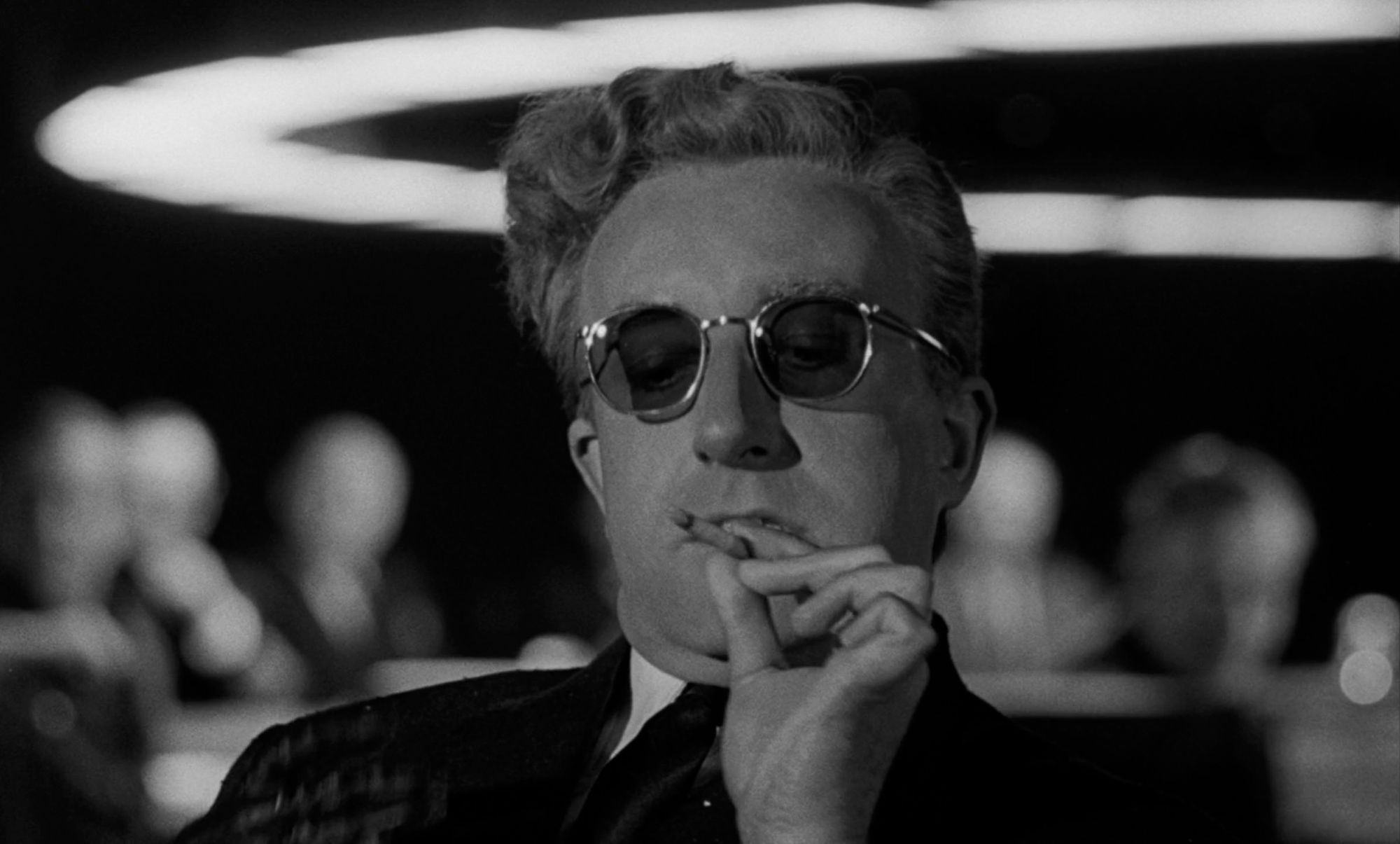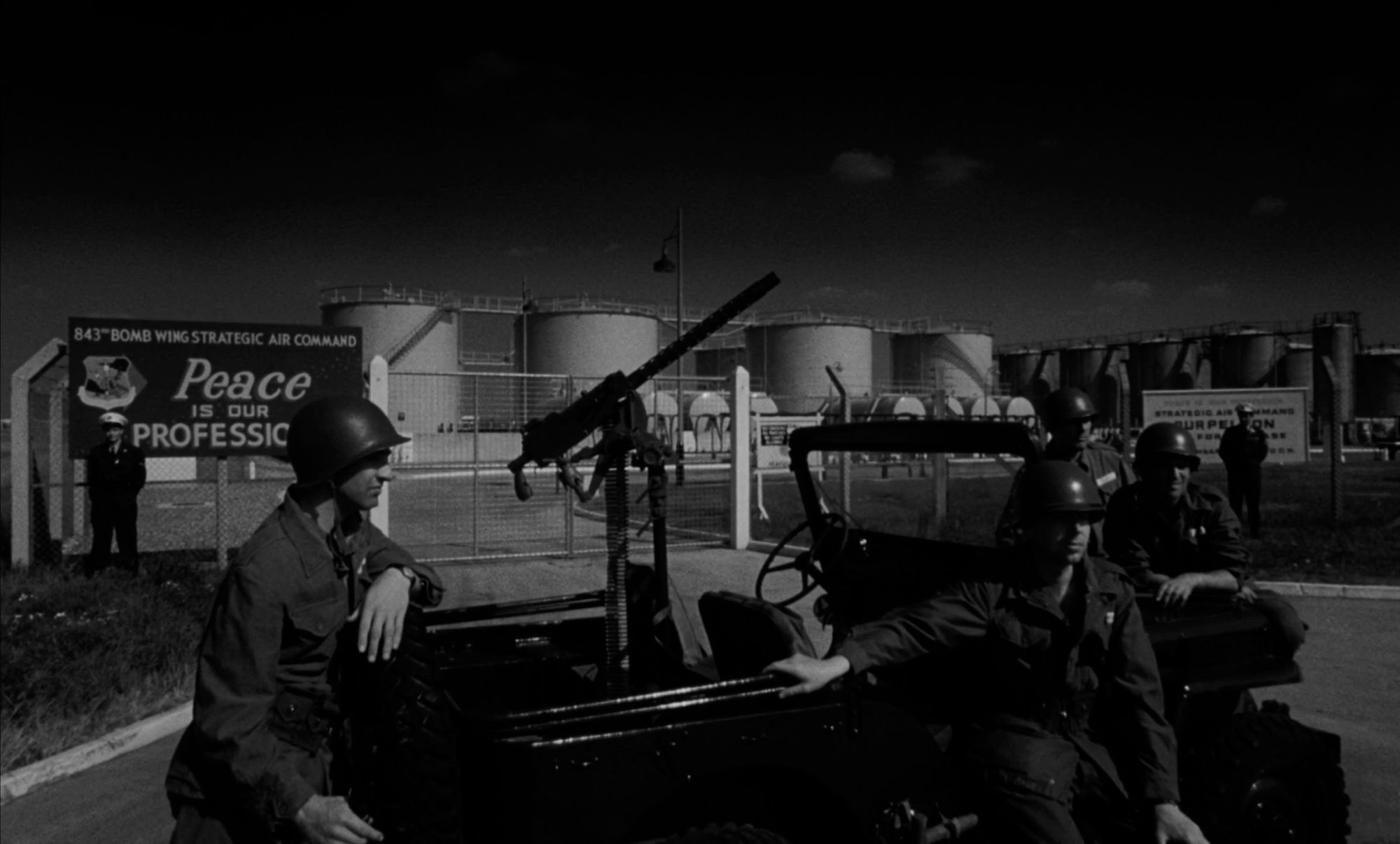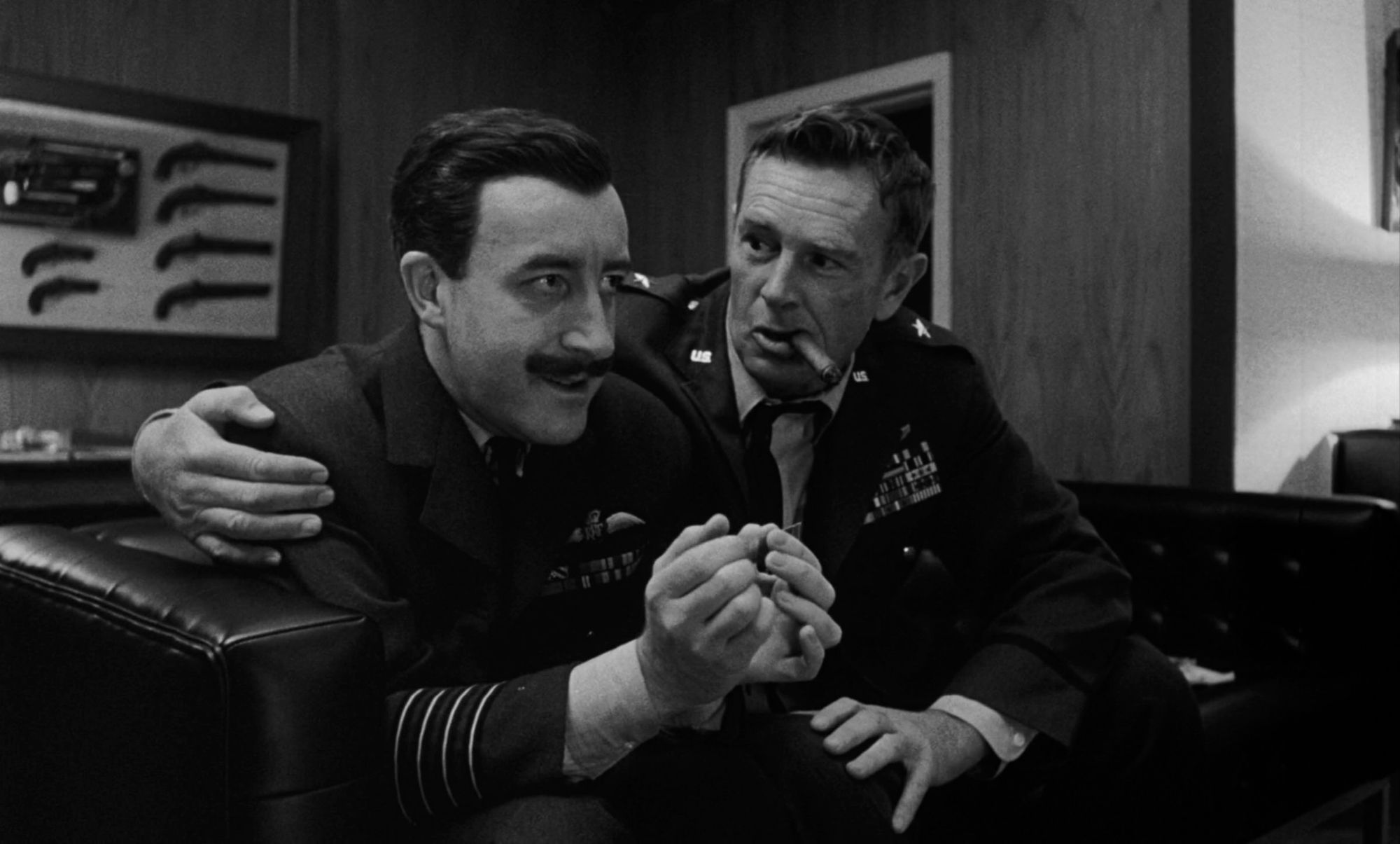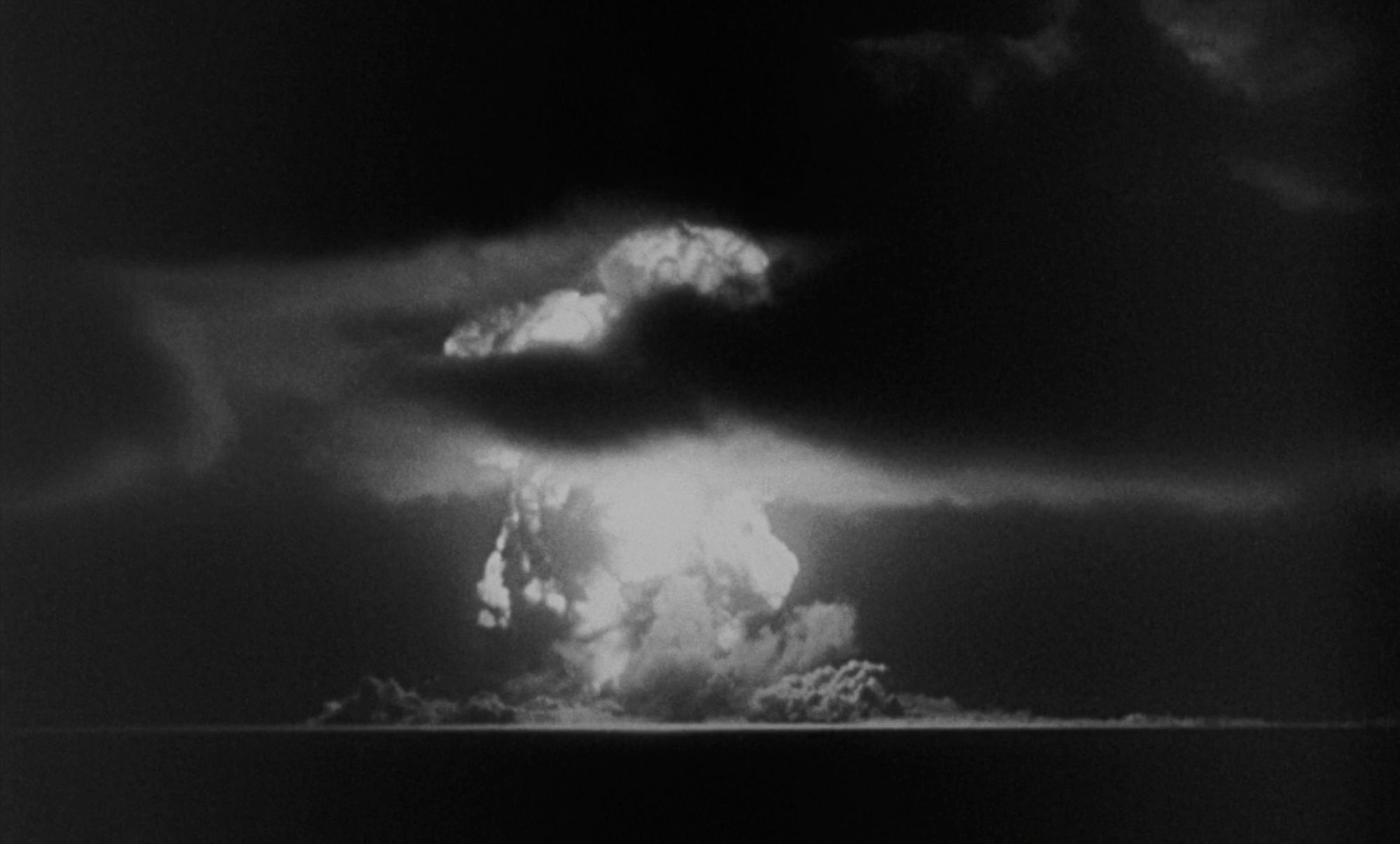Dr. Strangelove and Artistic Clarity
Kubrick's statement on nuclear weapons uses dark comedy as a clarifier & lubricant to deliver a bleak warning while having fun.

Dr. Strangelove (1964) is a funny entry in Kubrick's filmography. He had already broken free from the Holywood studio system following Spartacus (1960) and made Lolita (1962). So it wasn't the first film he independently produced. Many would say it wasn't his first masterpiece, either: Paths of Glory (1957) came well before it, and is commonly recognised as one.
In many ways, though, it feels like the first truly "Kubrick" film. And most would say it was the first masterpiece he made from his production base in England, where he would continue to make them, one after another, until his death more than three decades later.
It has most of the big Kubrick ingredients: sex, violence, genre leanings, high drama, a riveting story, dark humour, grand themes, a kind of intellectual lucidity, and a psychological, dreamlike character. It is also highly accomplished: the acting, structure, writing, and photography are all great.
Summarising the plot brings out its strangeness: a darkly comic "nightmare comedy" (a term Kubrick preferred to "satire") about nuclear apocalypse. Though independently produced, it is shot in a fairly traditional way that wouldn't feel out of place in the old studio system. Dialogue and acting lead the film, more than the authorial presence of director.
It's a transition film between the old Kubrick, exciting up-and-comer knocking out subversive hits within Hollywood, and the artistic iconoclast who put his creative fingerprint on every frame, making films that usually took years or decades for their greatness to be fully appreciated.
That makes the film tricky to rank. Sight & Sound magazine runs a big poll every decade, and in 2002 it ranked as the fifth-greatest film of all time, on the Directors Poll. On the general poll, it didn't make the top 100. It's as if people aren't quite sure what to do with it (which happens a lot with Kubrick films).

Strangelove has many qualities, but above all it has unusual artistic clarity. Everything about the film has a kind of vivid and lucid character, despite also being dreamlike (nightmarish) and having a plot centred on a general who has lost his mind. Characters express thoughts and ideas in a way that is highly articulate. Even General Ripper is able to explain, to Group Captain Mandrake's alarm, the details of the communist conspiracy he believes has sapped his "natural fluids" with horrifying clarity.
The acting has the feeling of clarity, too. Gestures and dialogue delivery are clearer than necessary - slightly exaggerated and over-the-top. There is no mystery or ambiguity. The viewer can read events, beliefs, and thoughts in exactly one way. Which sounds straightforward, but is a quality few films have. It takes great writing, acting, and focus of style.
Clarity permeates the structure, too. We cut between the B-52 bomber making its way into and through Russian airspace, the War Room with the emergency meeting where government officials attempt to manage the crisis, and the army base where General Ripper is holed up with the flight codes needed to command the bombers to abort their mission. The viewer is given a Gods-eye view on things. A complete awareness of everything that is going on. Pace is controlled perfectly - no frame is wasted, with every shot significant either because of key plot points, great acting, or classic shots and lines. This efficiency and clarity makes for a highly satisfying narrative structure.
Black humour and madcap satire create a kind of clarity of their own. Comedy has a way of waking up the brain and giving it focus - rendering thoughts with enhanced vibrancy and feeling. It makes them harder to mistake. It makes morbid subjects digestible, too. Easier to discuss, engage with, deal with. Perfect for a story concerning nuclear apocalypse.

The nightmare logic used in the war room has emotive impact as satire. Comedy is effective at revealing the absurdity of rationalisations like, say, the US throwing every nuke at their disposal behind a rogue squadron of bombers because logically this minimises Russia's ability to retaliate. Or making plans to escort a couple hundred thousand people underground to live in mine shafts for a hundred years and repopulate the human race, waiting out the nuclear shroud that covers the Earth due to the actions of a general who thought his drinking water had been tainted. There is an absurdity to catastrophe on that scale that can only be articulated by comedy.
This aerial bombardment of clarity, through acting, writing, structure, and comedy, has some obvious results. The film gets everything it wants to say about nuclear policy and safeguards across clearly to the viewer. And it gives the viewer an entertaining experience in the process. Maybe the greatest achievement of Strangelove is that it was commercially successful - miraculous given its incredibly bleak subject matter and the climate of nuclear paranoia at the time of its release. It should have been the last thing people wanted to see in the cinema.
Underneath its comedy is real fear and concern. The final shots, showing images of nuclear bombs exploding into mushroom clouds over the song 'We'll Meet Again', tap into this. This song, by Vera Lynn, was released at the outbreak of World War II in 1939. It is a spirited but regretful farewell to those heading off to war. Still in living memory of the outbreak of war and the release of the song, audiences who saw Strangelove in theatres would have understood the meaning of those shots perfectly.
Those closing moments show the outbreak of World War 3 and what that would entail in a world full of nuclear weapons. Though brief, it is profound when read in the context of the song meaning, essentially, "here we go again." It's as if Kubrick drops his smile, the comedy that has carried the viewer through the last 102 minutes fades, and just as the viewer is preparing to get up from their seat to leave, whispers "seriously, though."

James Lanternman writes movie reviews, essays, and moonlit thoughts. You can reach him at [email protected].
Previously… The Organics
